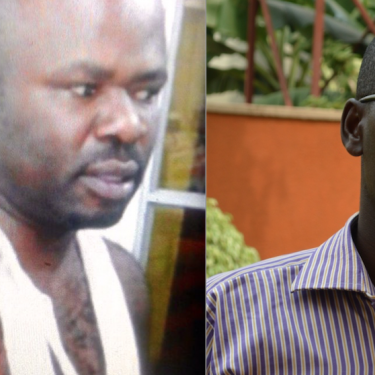Burundi: Regime threat to journalists, even those who have fled abroad

After learning that an exile journalist was stabbed two days ago in nearby Uganda and a freelancer has been held incommunicado for more than ten days in Bujumbura, Reporters Without Borders (RSF) calls on the Burundian authorities to end their policy of intimidating media personnel – even those who have fled abroad – and to end the impunity enjoyed by the police and intelligence services. Boaz Ntaconayigize, a Bonesha FM journalist who had fled into exile, was stabbed by four men in the Ugandan capital, Kampala, just a week after he told his editor that Burundian intelligence agents had infiltrated the Burundian refugee community there. He survived the attack and is now hospitalized. Burundi’s National Intelligence Service (SNR) is also reportedly responsible for freelance journalist Jean Bigirimana’s disappearance in Bujumbura on 22 July. His family feared that he had been murdered but RSF finally discovered yesterday that he is alive and is being held incommunicado.
“What these two cases – Boaz Ntaconayigize in Uganda and Jean Bigirimana in Burundi – have in common is the complete impunity enjoyed by those responsible for abuses against journalists,” said Cléa Kahn-Sriber, the head of RSF’s Africa desk. “We call on the Burundian authorities to end these practices, which are just aggravating the crisis and delaying the possibility of a return to the rule of law.”
The SOS Média Burundi news site said Boaz Ntaconayigize reported having being attacked and stabbed at around 9 p.m. on 1 August near his home by four men who left him for dead in a gutter. Bonesha FM director Patrick Nduwimana, who has also fled Burundi, said Ntaconayigize told him a week ago that SNR agents were trying to infiltrate the Burundian refugee community in Uganda in order to track down journalists and civil society activists. “He was attacked one week after issuing that warning so we cannot help thinking that they wanted to eliminate him,” said Nduwimana, who also reported that Ntaconayigize recognized two of his assailants as Burundians who pose as refugees and who have a business in Kampala. Ntaconayigize was on the air at Bonesha FM’s headquarters in Bujumbura when the station was attacked and destroyed on 14 May 2015.
Esdras Ndikumana, a Radio France Internationale correspondent who was badly beaten by SNR officers inside SNR headquarters in Bujumbura exactly a year ago, on 2 August 2015, has voiced the same concern about SNR infiltration. In exile in Kenya, Ndikumana has reported that unscrupulous members of the Kenyan police were paid to attack Burundian refugees who criticize Burundi’s President Pierre Nkurunziza. After Ndikumana’s beating a year ago, the president’s office announced that an investigation would be carried out in order to identify those responsible. But no progress was made with the investigation. According to reliable sources, the first judge was transferred, the second resigned for unknown reasons, and thereafter no other judge was appointed to handle the case.
If the SNR is able to export its violent methods beyond Burundi’s borders, it should come as no surprise that journalists still inside the country are even more exposed to danger.
Jean Bigirimana, who works for two media outlets, Infos Grands Lacs and Iwacu, is being held incommunicado by the SNR in Bujumbura because he was in contact with Radio Publique Africaine journalists now living in exile, a reliable source told RSF yesterday. A decision on whether he will be charged will probably be taken this week, the source added.
Bigirimana is unfortunately not the only journalist currently in detention. Julien Barinzigo, a journalist who works for the Oximity News website and other media outlets, has been held since 17 June. He was arrested by plainclothesmen in Cibitoke, a district to the north of Bujumbura, and was taken to an SNR detention centre. He has been brought before a judge twice, the second time on 1 August, and is charged with insulting the president and endangering internal state security. When reached by RSF, he said he was worried that the second charge had been revived after the prosecutors dropped it during the first court appearance. The request for his release that his lawyers submitted has not been examined because, according to the judges, Bujumbura’s courts are in the process of being reorganized.
“There are no consequences for members of the security and intelligence services who commit acts of violence or intimidation against journalists,” RSF added. “Journalists are targeted simply because they are journalists, regardless of what they actually report. This has become a full-blown witch-hunt.”
An example of this was the beating that Infos Grands Lacs journalist Nestor Ndayitwayeko received at the hands of a policeman as he was leaving a bar in the southeastern town of Rutana. The policeman simply accused him of being a journalist. As Ndayitwayeko pointed out: “A journalist is not an enemy of the people. We are the people. The police are there to protect us. The justice system must also do its job.”
Burundi is ranked 156th out of 180 countries in RSF’s 2016 World Press Freedom Index, after falling more places in a single year than any other African country.


